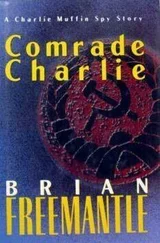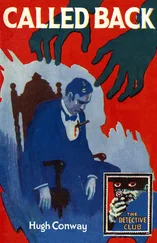Albert Edwards - Comrade Yetta
Здесь есть возможность читать онлайн «Albert Edwards - Comrade Yetta» — ознакомительный отрывок электронной книги совершенно бесплатно, а после прочтения отрывка купить полную версию. В некоторых случаях можно слушать аудио, скачать через торрент в формате fb2 и присутствует краткое содержание. Жанр: foreign_antique, foreign_prose, foreign_sf, на английском языке. Описание произведения, (предисловие) а так же отзывы посетителей доступны на портале библиотеки ЛибКат.
- Название:Comrade Yetta
- Автор:
- Жанр:
- Год:неизвестен
- ISBN:нет данных
- Рейтинг книги:4 / 5. Голосов: 1
-
Избранное:Добавить в избранное
- Отзывы:
-
Ваша оценка:
- 80
- 1
- 2
- 3
- 4
- 5
Comrade Yetta: краткое содержание, описание и аннотация
Предлагаем к чтению аннотацию, описание, краткое содержание или предисловие (зависит от того, что написал сам автор книги «Comrade Yetta»). Если вы не нашли необходимую информацию о книге — напишите в комментариях, мы постараемся отыскать её.
Comrade Yetta — читать онлайн ознакомительный отрывок
Ниже представлен текст книги, разбитый по страницам. Система сохранения места последней прочитанной страницы, позволяет с удобством читать онлайн бесплатно книгу «Comrade Yetta», без необходимости каждый раз заново искать на чём Вы остановились. Поставьте закладку, и сможете в любой момент перейти на страницу, на которой закончили чтение.
Интервал:
Закладка:
He established himself in the top floor of a two-story building on Washington Square, East. He took the place on a long lease, and making free with the partitions, had arranged a big study in the front overlooking the Square, a bath, a bedroom, and a kitchenette behind it. Two big rooms in the rear he sublet as storerooms to the carriage painter who rented the ground floor. Having a horror of servants, he made his own coffee in the morning and Signora Rocco, a worthy Italian woman, came in with a latch-key when he was out at lunch and put the place in order. Twice a week he had to go up to the University.
The rest of his time went to what he considered his real work. He was to call his book A Synthetic Philosophy . Hundreds of would-be sages had cut themselves off from all active communion with life, had retired to the seclusion of a study or cave, and had written solemn tomes on what Man ought to think. Longman was going to discover what his kind really did think. He went about it in a systematic, almost statistical way.
He had reduced the more important of the various possible human beliefs to twenty-odd propositions and many subheads, all of which he had had printed on a double sheet of foolscap. It began boldly by raising the question of Deity. From the heights of metaphysical discussion of the Existence, the Unity, and the Attributes of God, it came nearer to earth by inquiring into Heaven and a belief in a future existence. Again it soared up into the icy altitude of Pure Reason and the Erkenntniss Theorie . Again it swooped down to more practical questions of Ethics, what one considered the summum bonum and under what circumstances one conceded the right to suicide, and whether or not one believed that every man has his price. Whenever Longman found willing subjects he cross-questioned them by the hour. From the notes he took he tabulated the victim's credo on one of the printed questionnaires and filed it away. Almost every one laughed at his idea, but with the same dogged momentum which had kept him bent for months on and over Assyrian bricks, which interested him only slightly, he stuck to this work which interested him deeply.
In a way he was especially fitted for it. Every one liked him and found it easy to talk freely with him. And he was quick to detect any cant or lack of sincerity. If he wrote "yes" after the question, "Do you believe it pays to be honest?" it was the subject's basic belief, not a pretence nor a pose. And he had a knack of putting his questions in simple, comprehensible language. The printed questionnaire bristled with appalling technical words. But he did not use such phrases as "ultimate reality," "the categorical imperative." He did not ask his subject if his idea of God was anthropomorphic. Very few of the people whose faith he analyzed would have understood such terms.
It was the essence of his proposition that he should tabulate the convictions of all sorts and conditions of men. And in his quest for varied points of view he had come into very close contact with a strange mixture of people. Into his "operating room," as Mabel Train derisively called his study, he had enticed college professors and policemen, well-bred young matrons and street-walkers. One of his sheets recorded the intimate convictions of the man downstairs who painted carriages; another, those of a famous opera singer. The Catholic Bishop of New York had undergone the ordeal and a Salvation Army lassie, who had knocked at his door to sell a War-cry , had come in to try to convert him. She had been very much distressed by his perplexing questions, but like all the rest had quickly fallen captive to his gentle manners and understanding eyes. She had dropped her missionary pose and had talked freely to him, not only of her beliefs, but also of her doubts.
Almost every one who had gone through the ordeal remembered it with a strange, awed sort of pleasure. It is so very rarely that we find any one to whom we can tell the truth.
There was a wreck of a man, an habitué of cheap lodging-houses and gin-mills, who would tell you the story on the slightest provocation. One cold October night when he had no money for a bed and was trying to live through the night on a park bench with a morning paper for a blanket, a man had asked him if he wanted a drink. Not suspecting the good fortune which had befallen him, he had followed Longman to the "operating room." First there had been a stiff bracer of whiskey – "good Scotch whiskey, sir," – and then a plentiful cold supper of bread and cheese and sardines and a steaming cup of coffee – "as much as I could eat, sir" – and a cigar – "as long as yer foot, sir. He was a real gentleman, sir, and he talked to me like I was a gentleman."
There was a young wife of an elderly professor. Some of the ladies of the faculty raised their eyebrows when her name was mentioned and did not go to her teas. She had been smitten by Longman's broad shoulders and gentle bearishness and had quite eagerly consented to come to his study. She did not tell anybody about it, but she cried when she thought about it – cried that he had not asked her again.
Whether or not Longman's book promised any great usefulness to humanity, the preparing of it was of undoubted use to him. He had seen life at close quarters, with what Mirabeau called "terrible intimacy." His heart had grown very large there in his "operating room." As well as he could he hid his ever ready sympathy under a surface joviality and flippancy. There were very few people beside Mabel who realized what a sentimentalist he was. He was a brother to Abou ben Adhem. And that love of his fellow-men necessarily brought him into bitter revolt against things as they are. But he had no collective sense; he loved his fellow men individually. He had no feeling for mass movements. Intellectually he realized the need of united activity, he believed in trade-unions and socialism. But the sight of a crowd always made him angry. He was an ardent apostle of the Social Revolution. But he could not work harmoniously with an organization. So the socialists called him an Anarchist. He did not care what he was called. But most of the difference between his very small living expenses and his liberal income found its way unobtrusively into some socialist or labor organization.
But for three years now Mabel Train had been the "Cause" to which he gave his devotion.
She was also of the class of those who, never having had to work, had volunteered in the cause of those who must. But she had done so in a more intense, thoroughgoing, and practical way than had Longman. She had given not only what money she could spare, but herself.
She was a graduate of the University of Wisconsin, and having come under the influence of the able and daring group of economists on that faculty had been educated to a position in labor matters which is very nearly as radical as that of the socialists. One of her professors had told her that in all his experience in coeducation he had never encountered a woman with a more masculine brain. At the time she had felt complimented. She had, at twenty, been proud that she did not have hysterics, that her mind did not have "fainting fits," that she could tackle the problems of the class-room in the same graceless, uninspired, direct way that men did. At twenty-seven she was beginning to realize that life was not a class-room exercise and that there were certain inevitable problems of womanhood which could not be solved man-fashion. She felt herself cold in comparison to other women. The romances of the girls in college had rather disgusted her. At twenty-seven she would have given her right hand for the ability to lose her head like some of the shop-girls among whom she worked.
As a matter of fact the professor had been quite wrong in calling her intellect masculine – it was only a remarkably good one. It had the fearlessness to look the folly of our industrial system in the face and understand it. She had a deep womanliness which made it impossible for her to accept a manner of life which was in contradiction to her intellectual convictions. Thinking as she did that the relations between capital and labor were basically unjust, it was necessary for her to spend her life in the fight for justice.
Читать дальшеИнтервал:
Закладка:
Похожие книги на «Comrade Yetta»
Представляем Вашему вниманию похожие книги на «Comrade Yetta» списком для выбора. Мы отобрали схожую по названию и смыслу литературу в надежде предоставить читателям больше вариантов отыскать новые, интересные, ещё непрочитанные произведения.
Обсуждение, отзывы о книге «Comrade Yetta» и просто собственные мнения читателей. Оставьте ваши комментарии, напишите, что Вы думаете о произведении, его смысле или главных героях. Укажите что конкретно понравилось, а что нет, и почему Вы так считаете.












